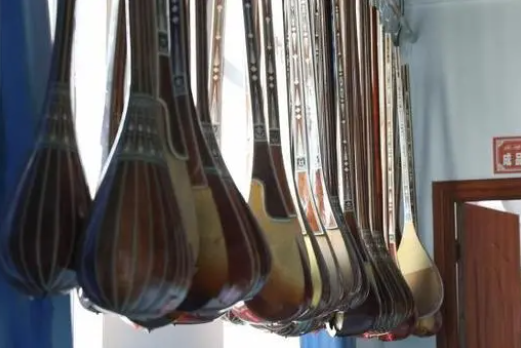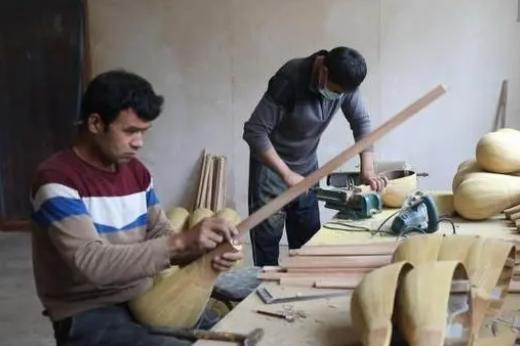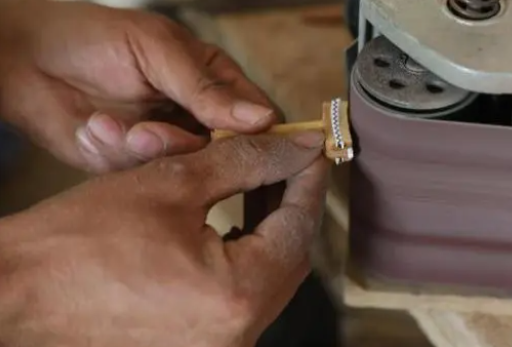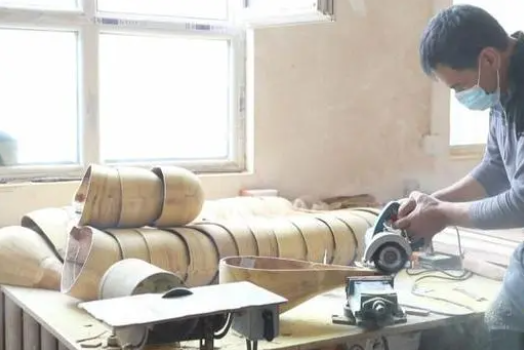Enter the intangible cultural instrument workshop in Bagqi Village to "play" the new life for the people
Recently, the Ministry of Culture and Tourism, the Ministry of Human Resources and Social Security and the National Rural Revitalization Bureau issued the Notice on Publishing the "Typical Cases of Intangible Cultural Heritage Workshops" in 2022. Three cases in Xinjiang were included in the list, among which the Bagqi Village Musical Instrument Making Intangible Cultural Heritage Workshops in Kasai Town, Moyu County, Hotan Prefecture, Xinjiang was listed.
When you enter Bagqi Village, you can vaguely hear the sound of "Dutar" (a traditional Uyghur stringed instrument). Follow the sound to the intangible cultural heritage workshop of the village.
After entering the door, a row of finished musical instruments are neatly hung in the finished product display area. The craftsmen are concentrating on the materials in their hands. All kinds of wood and semi-finished products are placed in the specified area, miscellaneous and not disorderly.

The founder of the workshop, Maihemuti Shack, is the fifth generation inheritor of the autonomous region-level national musical instrument production technology. He introduced the production steps of "Dutar" to the reporter of China News Network in detail, "Cut the wood, soak the wood chips in water, bake them until they are bent, then cut them down in order, butt them and glue them into a box, then make the rod and head, install the box, rod and head, then decorate the joints with colored ribbons, draw patterns on the box, rod and head, paint them, and finally install the strings, tighten the strings, and conduct trial tuning. It usually takes one week to make a Dutar instrument with a height of one person It takes half a month or even longer for some instruments with complicated craftsmanship. "
Since the establishment of the workshop in 2012, Mehmeti Shack has personally taught the villagers' piano making technology through the way of "company+intangible heritage+workshop+farmers", and transformed the advantages of local fruit and wood raw materials into economic advantages, driving the villagers to obtain employment nearby and steadily increase income.

Hairulinisa Barker, a villager of Bagqi Village, is an employee of the workshop. She said: "I have not only learned the making skills here, can make more than 10 kinds of national musical instruments, but also have a stable income, with an annual income of nearly 30000 yuan."
Maihemuti Shak said that the workshop mainly produces ethnic musical instruments and woodcarving handicraft products. In 2014, it was included in the list of intangible cultural heritage protection at the autonomous region level, and was qualified as "Xinjiang intangible cultural heritage productive protection base". With the booming of rural tourism, the musical instruments of the workshop are now sold all over the country. "Now there are more than 20 villagers in the workshop, with an annual production of more than 7000 musical instruments, and the sales volume will reach million yuan in 2022."

Dong Yan, a fourth-level researcher of the Intangible Cultural Heritage Division of the Xinjiang Culture and Tourism Department, said, "According to statistics, there are 74 intangible cultural heritage workshop products with annual sales of more than 30000 yuan in our district, and 7 typical cases of intangible cultural heritage workshops recommended by prefectures and cities."

In recent years, in order to promote the creative transformation and innovative development of culture, Xinjiang has organically combined the protection and inheritance of intangible cultural heritage with poverty alleviation and rural revitalization, so as to make intangible cultural heritage alive, transform it into productive forces, promote the industrialization and specialization of intangible cultural heritage, help the countryside lay a solid foundation for prosperity, and let the people increase income and become rich from it.
 渝公网安备 50010702504639号
渝公网安备 50010702504639号